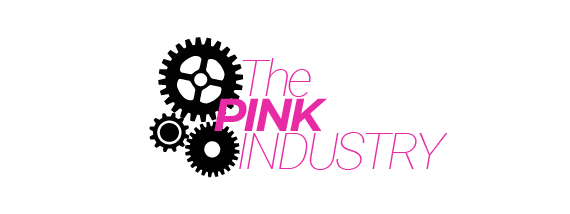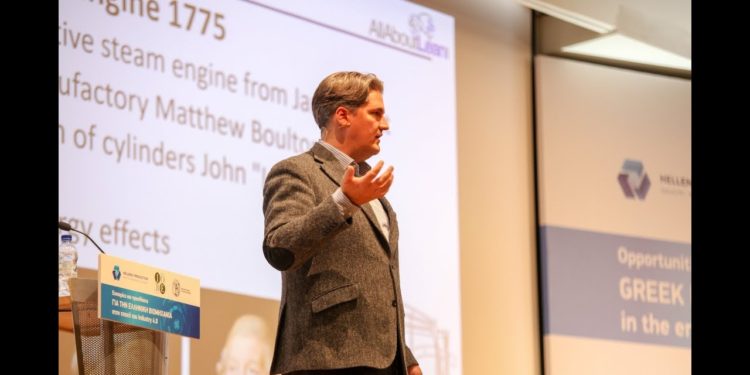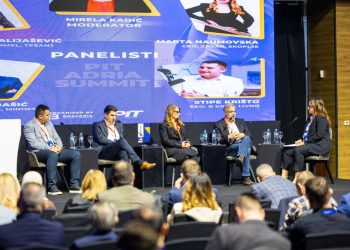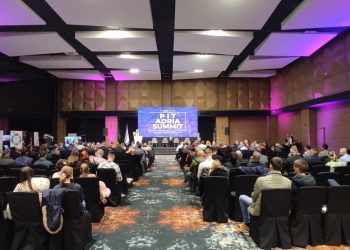(Note: read the English version of the interview below.)
U toku su pripreme za generalno godišnje okupljanje proizvodnje i industrije – PIT Adria Summit 2022 a kompanija Targer doo Sarajevo s ponosom najavljuje key note speakera na summit-u, svjetskog stručnjaka u lean optimizaciji proizvodnje, profesora Christoph Rosera.
Razgovarali smo o globalnim problemima i pitanjima proizvodnih kompanija te saznali šta nas očekuje na konferenciji kroz izlaganje i interaktivnu radionicu koja je najavljena za drugi dan summit-a.
Kako bismo što bolje predstavili učesnicima konferencije ko je Christoph Roser, predstavite se, čime se trenutno bavite i gdje najčešće možemo čuti i pročitati vaša predavanja?
Ja sam prof. dr Christoph Roser, stručnjak za lean proizvodnju. Učio sam o lean-u direktno od Toyote, gdje sam radio za Toyote Central R&D Laboratories u Nagoyi, Japan 5 godina, istražujući lance snadbjevanja, uska grla i lean proizvodnju. Radio sam i za McKinnsey i Bosch, imam i svjetsko iskustvo u radu u gotovo 200 različitih pogona. Pišem popularni lean blog AllAboutlean.com, a moja knjiga All About Pull Production upravo je dobila prestižnu nagradu Shingo Publication.
Učili ste prvenstveno Lean dok ste radili u Toyoti, možete li nam reći nešto više o ovom iskustvu, kao i o svom iskustvu rada u McKinseyju?
Jedna stvar koja me začudila u Toyoti u poređenju sa drugim kompanijama da tokom 5 godina nikada nisam ni za šta okrivljen. U zapadnom svijetu, s druge strane, ljudi često pokušavaju okriviti druge, a u nekim kompanijama se čini da je fokus u pronalaženju krivca više nego na rješavanju problema.
Priča o odlasku radnika u Njemačku decenijama je aktuelna na našim prostorima, opšte je mišljenje da se tamo radnicima nudi mnogo više nego što imaju i mogu dobiti u regionu Jugoistočne Evrope. Iz vaše perspektive, šta se nudi proizvodnim radnicima i inženjerima u Njemačkoj, koje su to pogodnosti koje proizvodne kompanije u balkanskim zemljama ne mogu ponuditi?
Na ovo je teško odgovoriti, jer ne poznajem toliko dobro jugoistočnu Evropu. Vjerujem da je glavni razlog viši nivo plata, posebno ako želite izdržavati porodicu koja živi u jugoistočnoj Evropi, a koja obično ima niže troškove života. Infrastruktura u Njemačkoj bi također mogla biti bolja. S druge strane, imamo dosta birokratije…
Priča o lean optimizaciji proizvodnje i produktivnosti koja bi kompanijama donijela veći profit, a potom i bolje uslove za radnike je sigurno nešto na čemu još moramo da radimo u regionu? Po vašem mišljenju, a budući da je Njemačka jedna od glavnih tehničkih i proizvodnih snaga u svijetu, kolika je produktivnost njemačkih kompanija i da li je zaista “sve savršeno” kako se često stiče dojam?
U proizvodnji ništa nije savršeno. Ovo je zapravo jedna od filozofija u Lean-u, jer uvijek možete poboljšavati. Njemačka radi neke stvari kako treba, posebno inženjering i dizajn. Ni proizvodnja nije loša, ali daleko zaostaje za Japanom. Jedan pozitivan aspekt koji vidim je da se u Njemačkoj radnici i menadžeri često dobro slažu. Sindikati su jaki, ali (obično) kooperativni. Također imamo kulturu ponosa na njemački inženjering i Made in Germany.
Na konferenciji ćete sa učesnicima podijeliti svoje ideje i savjete o mogućnostima kombinacije Lean-a i Industry 4.0, učesnici će imati priliku čuti konkretne primjere i preporuke za svoje kompanije. Možete li nam dati više informacija o prednostima učešća u vašoj radionici i vašoj prezentaciji?
U svom uvodnom izlaganju, pokazat ću vam neke izazove i mogućnosti Lean industrije 4.0. Neke od njih sam i sam naučio nedavno tokom svog odmora u Cirihu i turneje Van of Nerds u Francuskoj. Neke od ovih aplikacija Industry 4.0 mogu čak biti prikladne za manje budžete. U svojoj radionici ću se dublje baviti pull proizvodnjom. Vjerovatno ste čuli za Kanban, ali postoji više načina za kreiranje Pull-a, ne samo za proizvodnja na zalihe (engl. make-to-stock) već i proizvodnja po narudžbi (engl. make-to-stock). Na osnovu moje knjige “All About Pull Production”, pomoći ću vam u uspostavljanju pull sistema i odgovoriti na vaša pitanja.
………………………………………………………………………………………………………………………………
In order to better present to the conference participants who Christoph Roser is, please introduce yourself, what you are currently doing and where we can most often hear and read your lectures?
I am Prof. Dr. Christoph Roser, an expert in lean manufacturing. I learned about lean directly from Toyota, where I was working for the Toyota Central R&D Laboratories in Nagoya, Japan for 5 years, researching supply chains, bottlenecks, and lean manufacturing. I also worked for McKinney and Bosch, having worldwide lean experience in almost 200 different plants. I write a popular lean blog AllAboutlean.com, and my book All About Pull Production just received the prestigious Shingo Publication award.
You primarily studied Lean while working at Toyota, can you tell us more about this experience as well as your experience working at McKinsey?
One thing that struck me at Toyota compared to other companies is that during 5 years I was never ever blamed for anything. In the western world, on the other hand, people often try to blame others, and in some companies, the focus seems to be more on finding someone to blame than on solving problems.
The story of workers leaving for Germany has been current in our region for decades, the general opinion is that workers are offered much more there than they have and can get in the region of South East Europe. From your perspective, what is offered to production workers and engineers in Germany, what are the benefits that production companies in the Balkan countries cannot offer?
This is difficult to answer, as I don’t know South-East Europe that well. I believe the main reason is the higher wage level, especially if you want to support a family living in South-East Europe, which usually has a lower cost of living. The infrastructure in Germany may also be better. On the other hand, we do have a lot of bureaucracy…
The story about lean optimization of production and productivity that would bring more profit to companies and then better conditions for workers is surely something that we still have to work on in the SEE region? In your opinion, and since Germany is one of the world's main technical and production forces, what is the productivity of German companies, and is it really “everything perfect” as is often the impression?
In manufacturing, nothing is perfect. This is actually one of the philosophies in lean, as you always can improve. Germany does some things right, especially engineering and design. Its manufacturing is not too bad, either, but far behind Japan. One positive aspect I see is that in Germany, workers and managers often get along well. Unions are strong but (usually) cooperative. We also have a culture of being proud of German engineering and Made in Germany.
At the conference, you will share your ideas and advice with the participants about the possibilities of the combination of Lean and Industry 4.0, the participants will have the opportunity to hear specific examples and recommendations for their companies. Can you give us more information about the benefits of participating in your workshop and your presentation?
In my keynote, I will show you some challenges and possibilities of lean Industry 4.0. Some of these I myself learned just recently during my sabbatical in Zürich and the Van of Nerds tour in France. Some of these Industry 4.0 applications may be suitable for a smaller budget. In my workshop, I will go deeper into pull production. You probably know Kanban, but there are more ways to create pull, not only for make-to-stock but also make-to-order. Based on my book “All About Pull Production”, I will help you in establishing a pull system and answer your questions.
















